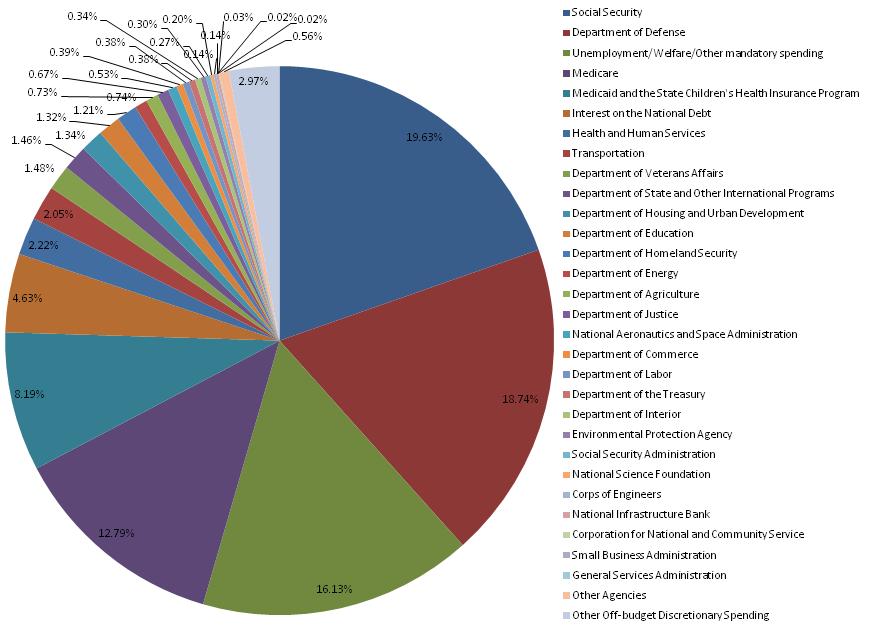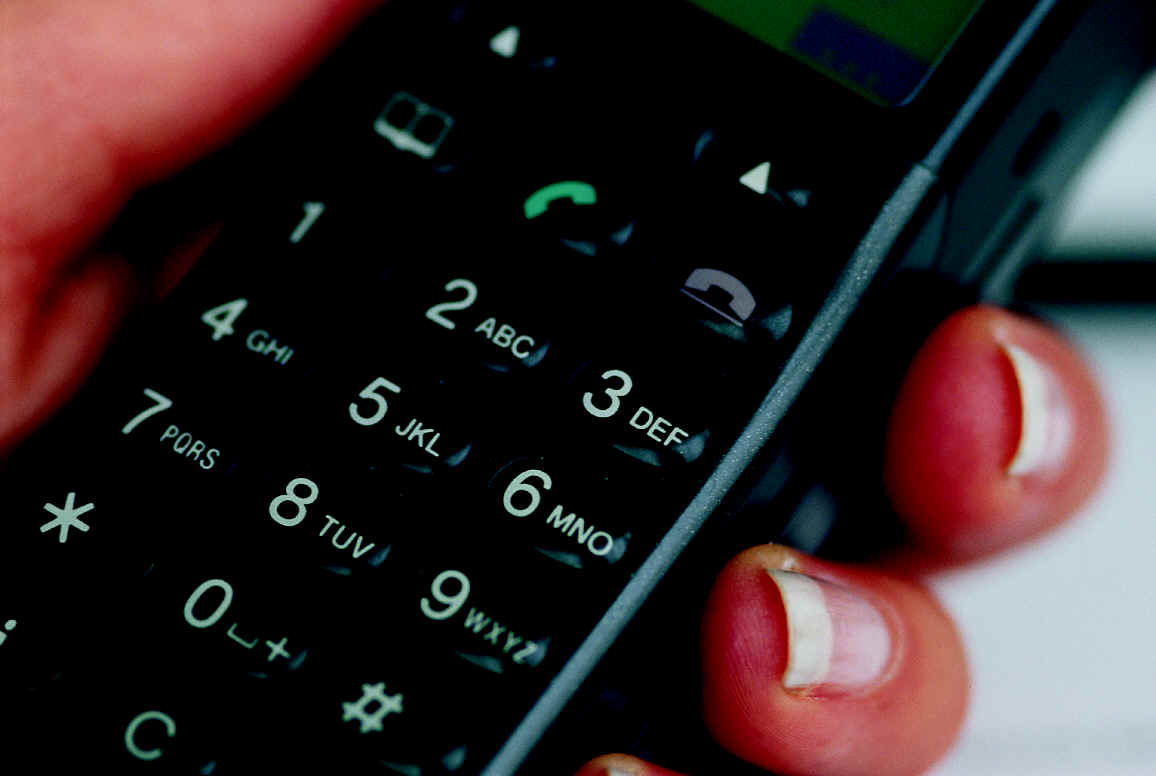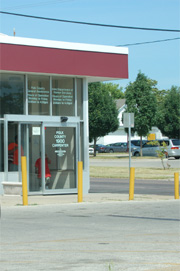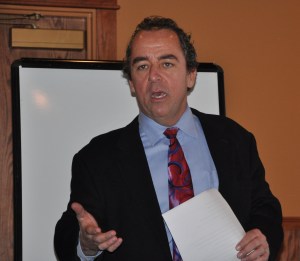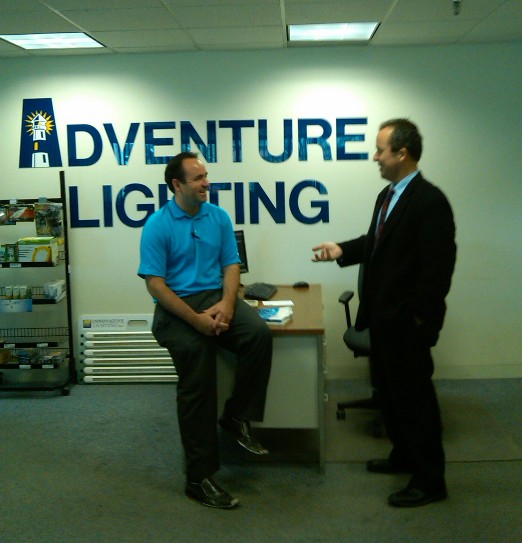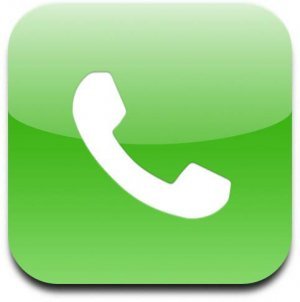(This is the first in a series of reviews of organizations that provide social services.)
Hello shoppers...
"The majority of people who are in social work, lost their compassion a long time ago. If someone at DHS smiled and said 'hi,' I'd (expletive deleted) my pants." -Polk County DHS employee, who asked to remain anonymous
The idea of creating a government agency that protects "the health, safety and welfare" of Americans, was first proposed by President Harding, in 1923. It only took a few more years - 36 - and not much red tape at all to officially create The Department of Health, Education and Welfare, in 1953. The "education" part eventually outgrew the other two things and went off on its own, in 1979, leaving behind the renamed Department of Health and Human Services.
Today the DHHS oversees over 300 programs, including:
- Health and social science research
- Preventing disease, including immunization services
- Assuring food and drug safety
- Medicare (health insurance for elderly and disabled Americans) and Medicaid (health insurance for low-income people)
- Health information technology
- Financial assistance and services for low-income families
- Improving maternal and infant health
- Head Start (pre-school education and services)
- Faith-based and community initiatives
- Preventing child abuse and domestic violence
- Substance abuse treatment and prevention
- Services for older Americans, including home-delivered meals
- Comprehensive health services for Native Americans
- Medical preparedness for emergencies, including potential terrorism.
- Funding for struggling bloggers
You can read more from the official DHHS site, other than what I've already copied and pasted, by clicking here.
The DHHS is a good-sized "big box store" in the U.S. Government's chain. It is staffed by 67,000 employees (out of a total of 2 million government workers - about the same as Walmart) who operate the 2nd largest Federal Government agency (by money allotted) on a shoestring annual budget of $78 Billion (in 2010 dollars, since that's what year this is).
The (bureaucratic) Kingfish, The Department of Defense, has $687 Billion to play with, by comparison.
Here's a helpful pie chart I just drew, which lists the different federal agencies and the percentage of the Federal Government's $3.55 Trillion total budget they'll consume, in 2010:
There are a few extra dollars here and there that are also part of the DHHS budget - like $740 Billion in Medicare and Medicaid payments. These payments are what are known as "mandatory spending," which means that any politician who tries to make them un-mandatory will mandatorily die.
An operating budget twice the size of Walmart's annual revenue + a workforce roughly the size of Hy-Vee's = the focus of today's Unsecret Shopper review. Specifically, I Secret Shopped the Polk County offices of the Iowa Department of Human Services.
The DHS isn't a store. It's not competing with Kmart. The Six Pillars of Great Customer Service don't apply.
That said, what does, from a customer service standpoint?
Should DHS employees be expected to smile? Be engaging? Should the people who use DHS services, expect kindness? Compassion? Do they have a right to complain if they don't get it? Like my grandma said when I mentioned that her homemade cookies "were a little dry.": "How'd ya like the price, kid?"
Here's something else that someone else said:
“The value of compassion cannot be over-emphasized. Anyone can criticize. It takes a true believer to be compassionate. No greater burden can be borne by an individual than to know no one cares or understands.” -Arthur Stainback, Baptist Minister
Let us establish a few things that most of us would (almost certainly hopefully probably) agree with:
1. The "social safety net" is chronically over-burdened.
2. People who work in social work are over-worked and under-paid.
3. People who work in retail are over-worked and under-paid.
Social work finds a kindred spirit in retail? Maybe the Pillars of Great Customer Service should apply.
Speaking of applying, I decided early on that I was not going to fill out an application for assistance. This created some interesting challenges during the process.
Why the hesitancy? If I told the financial truth on the application, I figured no one would see me. If I lied, I'd be committing fraud.
Instead, my story is that I recently lost my job, I'm desperate, and need food assistance, but I have questions about the application process, and want to see someone before I fill anything out.
So yes, I still lied, just not in writing.
I called several DHS numbers several times, and visited Polk County River Place (which houses the main DHS office, plus other government agencies) at 2309 Euclid, and the Family Medical, FIP (Family Investment Program) and Food Assistance Office (also known as "Income Maintenance Services") at 1900 Carpenter.
I won't grade my experiences with masks, as I would, was this a typical Secret Shopper review. Instead, I'll try to give you a sense of my journey through the DHS matrix, and how DHS employees interacted with me along the way.
Someone who suddenly finds themself in tough financial straits, who is confused, scared and desperate? That's a real-life scenario for many of the thousands of people who pass through the doors of the Iowa Department of Human Services every year.
How would the DHS handle one of them?
By phone:
Main DHS office, at 2309 Euclid - 725-2600:
(Calls were made over a period of two weeks)
1st call: (automated answer, then on hold 13 minutes) "Iowa Department of Human Services." (The voice sounded bored and almost angry - not the kind of greeting someone wants to hear after being on hold nearly a quarter of an hour.)
2nd call: (after 2 rings) "Iowa Department of Human Services, this is Bridgette." (Answered pleasantly enough)
3rd call: (after 1 ring) "Department of Human Services." (Pleasant)
4th call: (automated answer, then on hold 17 minutes) "Department of Human Services, Bridgette speaking." (Not sounding terribly happy)
5th call: (after 3 rings) "Iowa Department of Human Services." (Sounded rushed and very busy)
6th call: (automated answer, then on hold 15 minutes, then phone was picked up, heard someone talking to someone else on other end, then they hung up)
Overall:
I would recommend more consistency in the way the phone is answered, not only in verbiage but in tone of voice. There is certainly room for "What can I help you with?" or at least "Where can I direct your call?" This initial contact point would seem to be one of the most important, since it is a likely first step for most people who are just beginning their journey into the DHS system. While it's understood that Bridgette (or whoever else answers the phone) is extremely busy and is working hard, it's equally important to note that the people who are calling in are probably not in the best place, and so need and deserve more compassion and kindness.
Having said that, kudos to Bridgette for doing a good job of problem-solving, on several occasions. While you didn't sound happy, you were patient and helpful, and said "you're welcome" after I thanked you. It's a thankless job, Bridgette - so thank you. :)
Family Medical, FIP and Food Assistance Center, at 1900 Carpenter - 286-3555:
1st thru 9th calls (over a period of two hours): Busy signal
10th call: (87 rings before being answered) "Department of Human Services, this is Rhonda, can I help you?" (Very pleasant and kind!)
11th call: (2 rings) "Human Services." (Short, impatient and unpleasant)
12th call: (73 rings before being answered) "Department of Human Services." (Monotone, emotionless and robotic)
13th call: (1 ring) "Department of Human Services, this is Rhonda, can I help you?" (A different day, yet still pleasant, still kind, still sounding like she cares - awesome!)
14th call: (96 rings) "Human Services" (Not happy to be answering the phone)
15th call: (7 rings) "Department of Human Services, this is Rhonda, can I help you?" (Spot-on kind and pleasant - incredibly consistent!)
Overall:
Rhonda is a rock star - and not just on the phone (as you'll read a bit later on).
During my conversations over the phone with Rhonda, I explained to her that I had questions about the application, and wanted to talk to an advisor first, on the phone, before I proceeded. She asked me what questions I had, but I was adamant - I needed to talk to an advisor. Rhonda was equally firm - polite, but firm. Without an application, I couldn't get in.
On the third try with Rhonda, she encouraged me to come in and at least fill out my name, address and phone number, that that would get me in front of someone. Fair enough. Again, she was always patient, kind and helpful.
After explaining my situation to another woman who answered the phone, I did manage to break through. "I'll connect you to one of the trainers," she said. I got the voice mail of Cindy O' Brien, and left a message for her that explained my situation, and that I needed her to get back to me. I left my cell number, but never heard back from her.
The only thing I'd change about Rhonda's greeting is the closed-ended "Can I help you?" People who call in certainly need your help, Rhonda, so use that knowledge to engage them with a nice, open-ended "What can I help you with?" question. Also, try "My name is Rhonda" instead of "This is Rhonda." I know you answer a ton of calls, but try it, and see if it feels a little more personable.
As for the other hard-working people who answer the phone - listen to Rhonda. :) As for the large number of rings it sometimes took to get to a live person - all I can say to people calling in, is to be persistent, and don't take it personally, because the people on the other end are working very hard, and will get to you.
In person
Main DHS office, at 2309 Euclid in the Polk County River Place complex:
There was no one standing in line at the main desk as I approached it. Bridgette was sitting behind it.
"Can I help you?" she asked, unsmiling, monotone and bored, like she didn't care if she could, or if I needed it.
I explained that I'd just lost my job, that I was "in a bad place," and needed some help. As I explained my plight, Bridgette put her elbow on the counter and leaned her head slightly against her hand, as if she could barely tolerate having to listen to me.
She told me that I would need to go to 1900 Carpenter and fill out an application for food assistance, then quickly turned away, dismissing me. I stood there a moment and then said, "I walked all the way here. Before I walk all the way over there, are you sure there's nothing I can fill out here, just so I don't have to come back?"
"No, that's it." she said, without looking up.
I noticed that another woman, Maggie, was sitting to the left of Bridgette, by a Child Care Assistance sign. I moved over and stood in front of her. She was working on something but looked up after a half-minute and said "hi" through a slight smile. Maggie did a nice job of explaining that I needed to fill out forms for child care assistance (for my seven-year old son) and that it would take 30 days before I could qualify.
I thanked her. She said "um-hum." I left.
Overall:
I couldn't begin to guess how many phone calls you answer in a day, Bridgette, how many people you wait on, how they are suffering, in a bad place, how many of their sad faces you must look into, how many of the same questions you get asked, over and over.
I can't begin to imagine.
What I can imagine is the way I felt going into that building - it was hard. It brought up memories of when I had to go on food assistance, years ago, in some lean days between radio jobs.
It was made harder by my interaction with you, Bridgette.
Next time, please give a little bit more of yourself. Ask "What can I help you with?" instead of the less-caring "Can I help you?" Pay attention to the people who are in front of you - they want it, need it, crave it, deserve it. Thank them for coming in. Wish them good luck. Toss them a smile.
Overall, give more of your compassion and attention and engagement and love. Do it for those of us who have family members and friends who will come to you, seeking help. Do it because it's the right thing to do. And do it, most of all, because you are a hero - you, too, Maggie. You are both on the front lines, fighting a battle in a war we'll never win, but can't stop fighting.
We thank you for being there. We thank you so much.
Family Medical, FIP and Food Assistance Center, at 1900 Carpenter
There was only one person in line in front of me when I walked into the building, and they were finished by the time I got up to the glass partition that separates the DHS clerical staff working in the "intake" area from people who are there, seeking help.
The woman at the counter greeted me with a slight smile and a nice 'hi."
I handed her the first page of the application for assistance, which I'd filled out with my name, address and phone number only, as per Rhonda's instructions. I explained to her that I had questions before I filled out the rest of it, that Rhonda had told me on the phone to just give that basic info, and someone would see me.
The woman replied, "That was me," and smiled slightly again, taking the page from me. "Have a seat. Someone will come out and get you as soon as possible."
The wait time was about an hour, which I thought was completely reasonable. The waiting area had 30 chairs in it, of which 10 were occupied, so I suspect I was there on a relatively slow day.
As I sat, I observed some things that surprised me.
The people, who were waiting, seemed in fairly good spirits. Some looked bored, sure. But many talked, smiled and laughed. It was not like being at a funeral. DHS employees would occasionally open up a door and call out someone's name, and that person would get up and walk back to a set of cubicles on the other side of the main wall, exchanging pleasantries as they did so.
The DHS employees working behind the glass also seemed happy, for the most part.
An hour later, the door opened and Susan Krahenbuhl's head popped out from behind it.
"Jon?"
It was my turn.
She didn't introduce herself to me as we walked back towards her cubicle, didn't shake my hand - didn't say anything.
As we sat down at her desk, Susan looked down at my application instead of at me, and said, "Rhonda mentioned that you had some questions about the application."
I asked her about the process, about how long it would take to get food assistance. Susan answered my questions, looking up at me on occasion.
She then did something I thought was very subtle, and very cool: she simply started asking me for the information that I hadn't written on the application.
Susan didn't ask me why I was so hesitant to fill it out. She didn't make me feel bad about not having done so. She just moved the process forward, by asking me the questions that needed answered.
It was a beautiful thing to watch.
Susan didn't smile while she did this, didn't use my name and didn't always look me in the eye. Those are things she can work on. She was also patient, persistent and kind, and obviously cared about me, and my plight. Those are things she has down pat.
It was time to tell her the truth.
Susan was surprised, of course, when I told her that I was an under-employed blogger, not an unemployed lumberjack (okay, "Cable TV salesperson"). She also flashed the first smile I'd seen from her. :)
Susan has a Master's Degree in Social Work, has been with DHS for three years, and follows a very simple philosophy, when it comes to how she treats the people she sees.
"I hope I don't ever have to be in this situation. But if I do, I'd want someone to treat me with respect."
Susan also told me that DHS staff members "don't get trained on customer service," but that they do look for candidates "who are good with people, or who have a background in sales or customer service."
That avenue appears to be paying off.
She also mentioned that Rhonda is about to join her ranks.
"Her last day as clerical staff is Friday," Susan said through a smile. She's been promoted to income maintenance worker - which is what I am."
Congratulations, Rhonda! It looks like you'll be surrounded by caring, engaging people, just like you.
As I shook Susan's hand and thanked her for being so kind to me, I suddenly realized that the DHS appeared to be doing what I've been telling clients to do for years.
Hire happy. Train skills.
It was an epiphanal moment, in a day filled with many.
I walked back out through the waiting area, but decided to walk up to the counter just one more time, to see if I could get engaged by one more DHS employee.
A woman - who turned out to be Connie - took her time looking up at me from where she sat, then stood up and, like helping me was the last thing in the world she wanted to do, slowly walked over to me.
"Hi," she said through a grimace. "Can I help you?"
I missed Rhonda already.
Jonnie Wright is a customer service evaluator and trainer, professional secret shopper, marketing strategist and host of The Unsecret Shopper Radio Show, Saturday mornings 8-9am, on 1350, KRNT.
 Click to be taken to Jonnie's Facebook page
Click to be taken to Jonnie's Facebook page
 Click to be taken to Jonnie's Twitter page
Click to be taken to Jonnie's Twitter page
 Click to be taken to Jonnie's blog
Click to be taken to Jonnie's blog
 Click to email Jonnie (jonnie@thebuyosphere.com)
Click to email Jonnie (jonnie@thebuyosphere.com)

Open The Buyosphere Toolbox to get FREE exclusive access to proven tools that will help you generate higher shop sales and profits - delivered weekly, right to your inbox!


